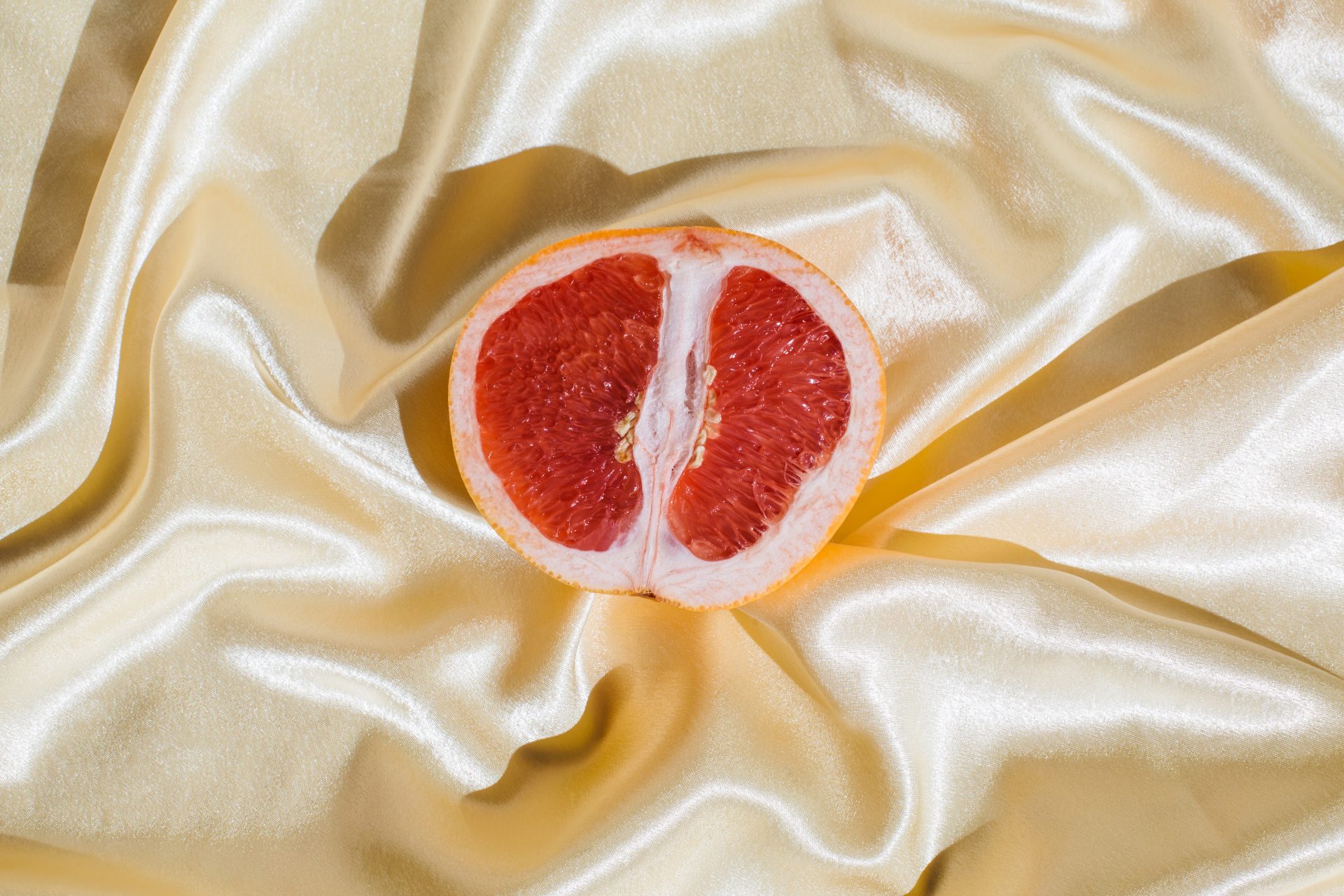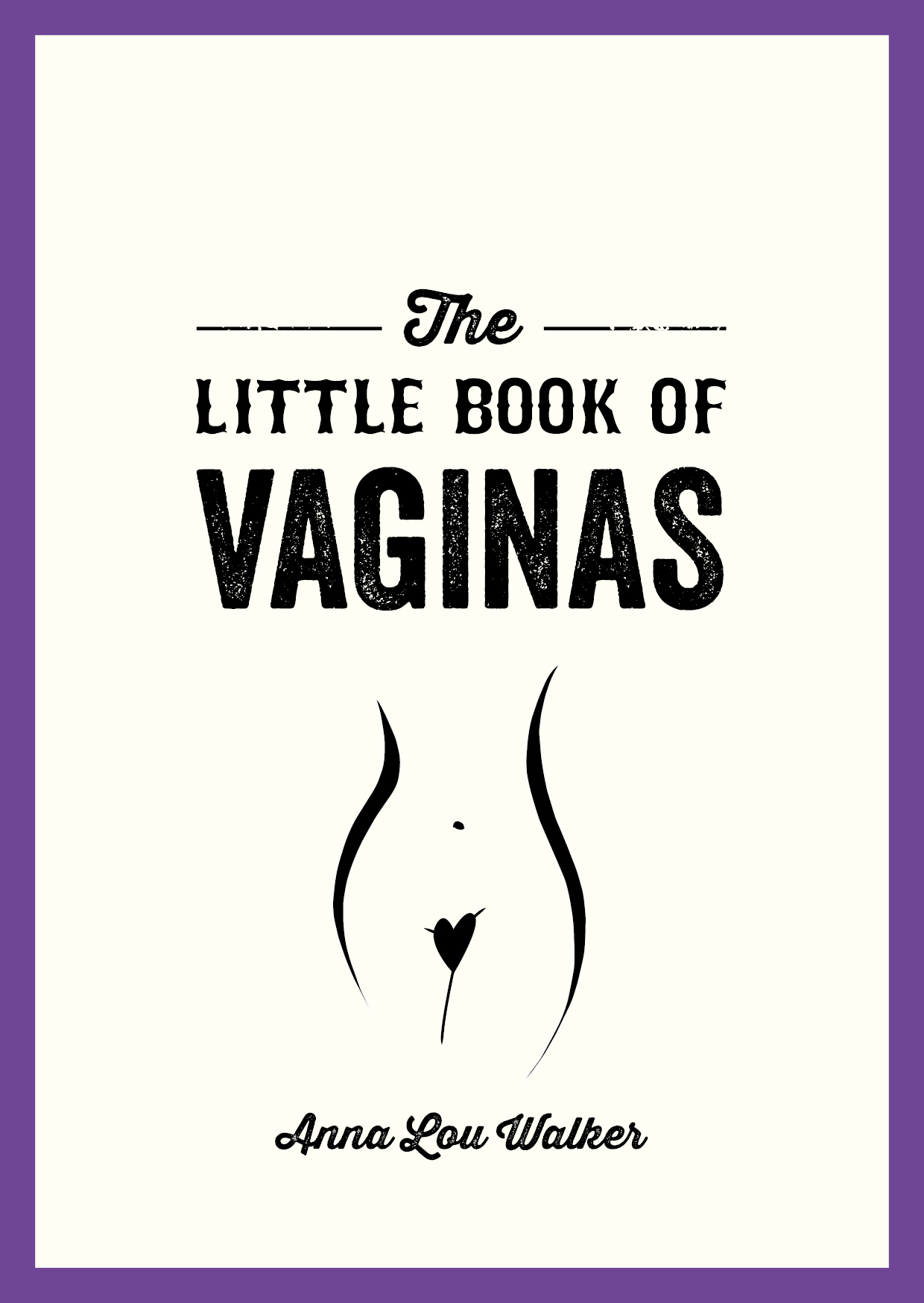Written by Anna Lou Walker
From cherry-popping to fishy smells, there’s a lot of conversation surrounding our vaginas but author of The Little Book Of Vaginas, Anna Lou Walker, is here to separate the fact from the fiction.
Whatever you call yours, the vagina is shrouded in more mystery and taboo than any other body part. Sometimes seen as a source of embarrassment and anxiety for people across the globe – 45% of people with vaginas in western countries never talk about their vaginal health with anyone, not even their doctor – it’s also responsible for bringing joy, pleasure and life itself. Being able to talk about your vagina without shame is important for both health and pleasure. Here, author of The Little Book Of Vaginas, a succinct and celebratory guide that helps separate fact from fiction, journalist Anna Lou Walker debunks common myths about vaginas.
The hymen is a mark of virginity
The hymen is a very thin section of mucosal tissue found inside the opening of the vagina. Contrary to popular belief, it does not completely cover the vagina at all, instead it’s shaped like a bagel with a slight opening that allows people to have periods, and the free flow of vaginal fluids before penetrative sex happens for the first time.
Perhaps the most persistent myth about the hymen is that it “breaks” the first time someone has sex, leading to the popular phrase “popping your cherry”. In fact, though first sexual experiences can be uncomfortable, this is because of the hymen stretching and not because it has been “broken”. Some people are born without a hymen at all, and for many, the hymen stretches long before they have sex for the first time, through sport or the natural growth of their body.
You shouldn’t have sex during your period
With cramps, stomach ache, increased hunger and irritability, the last thing you should have to do during your time of the month is deny yourself sex too! It’s perfectly safe to engage in any of your regular sexual activities during your period, so if you and your partner feel comfortable with the possibility of slightly messier love making, go for it. It might even aid your PMS, as orgasms have been shown to ease cramps by releasing tension in the muscles of the uterus.
Period sex has also been shown to make your periods shorter, provide natural lubrication and ease migraines and many people report a higher sex drive during that time of the month. If you plan to experiment with a little scarlet sex, make sure you still use protection, as your period doesn’t leave you immune to sexually transmitted diseases or the possibility of getting pregnant.
You need special products to clean the vagina
Despite the wealth of products on offer promising to clean and restore balance to your downstairs, you do not need to use anything specific when washing your nether regions.
In fact, using soaps and shower gels anywhere inside your labia majora can be extremely bad for your vaginal health, leading to a PH imbalance and all manner of infections.
One of the many wonders of the vagina is that it’s self-cleaning. Your regular secretions see to the cleaning and maintenance of your vagina all by themselves, without the aid of scented soaps or wipes.
When showering, simply use an unscented soap to gently wash around the outside of the vulva and your perenial area, between the vagina and anus. Douching – the process of flushing water up into the vagina to clear out secretions – can disrupt your natural bacteria, leading to yet more infections and is completely unnecessary for keeping your vagina clean.

Having lots of sex makes vaginas “loose”
A myth used to slut-shame sexually promiscuous women for centuries, the idea that engaging lots of sexual activity results in a loose or saggy vagina is completely false.
Society perpetuates many falsities when it comes to the tightness – or lack thereof – of the vagina. First, that virgins have particularly tight vaginas, loosened by their first sexual experience. Second, that frequent sex loosens it further. Third, that childbirth loosens the vagina to an extent that it can never recover. None of these rumours are true.
Vaginas are extremely elastic. They’re also a “potential space”, which means that they aren’t open at all most of the time. The resting vagina measures between two and four inches but can stretch to almost magic proportions, Transformer-style, to a circumference of 10cm during childbirth. Despite this incredible change, the vagina is like an elastic band and can snap back to its original shape very quickly. Most mothers find that their vagina has returned to its former size within six months of childbirth.
Vaginas smell like fish
It’s a rumour you most likely remember from your school days, and self-consciousness around smell is something most vagina-owners experience at some point. Indeed, there are a host of products on the market designed to neutralise the vaginal “odour”. Gwyneth Paltrow hit headlines in 2019 for a rather unusual addition to her wellness store Goop, a candle named “This Smells Like My Vagina” with notes of geranium, citrus and rose.
Contrary to the fishy myth and the vagina-scenting industry that has popped up around it, healthy vaginas simply smell of… well… vagina. Each has their own unique scent, and only you can know what “normal” means for you. Many describe their smell as musky, tangy, coppery or even reminiscent of beer. Indeed, the healthy bacteria that dominate vaginas – known as lactobacilli – can also be found in yoghurt, sourdough bread and some beers, which is why the scents have common ground.
If your vagina does smell like fish, it’s most likely the sign of a common infection such as bacterial vaginosis, which can be cleared up easily with a trip to your doctor. The reason for this scent is that both bacterial vaginosis and decomposing fish involve the chemical compound trimethylamine.
Periods can attract sharks
A myth most likely born of a fear of tampons and one too many screenings of Jaws, a surprising number of people believe that swimming in the ocean while menstruating can alert blood-thirsty sharks to your location. There are absolutely zero recorded cases of women attacked by sharks on account of their periods.
First, menses doesn’t consist of pure blood in a way that could seriously be expected to leave a passing shark drooling. Menstrual fluid is made up of mucus, vaginal secretions and endometrial particles as well as blood and clots, all of which would significantly mask the scent of the blood. Second, the blood lost during your period isn’t “flowing” in the sense that a more serious ocean-borne injury could be. Rather, it’s just being expelled from your uterus, and not in high quantities at that. The average period removes just 80ml of blood from the body in total, so the amount likely to be lost during a quick dip in the sea is seriously low.
Vaginal discharge means something is wrong
Worried about the discharge left in your pants after a long day? Don’t be. Discharge is a completely normal part of everyday life and protects your vagina from infection while keeping it clean and moist. What amounts to a “normal” level of discharge differs for everyone. Much like sweat, some people will produce barely any while others will create several teaspoons a day. There is no right or wrong amount, whatever is normal for you, is perfectly natural.
Your discharge will change significantly during different times of your cycle. During ovulation (approximately 14 days before your period), it may become sticky and you’ll probably feel noticeably wetter. Right before ovulation, it’ll be white and thick. After ovulation has finished, your discharge may be dry, or disappear completely.
The only time to worry about your discharge is if you notice a change in the usual smells, consistency or colour of your secretions. Then it’s time to visit your doctor.

Removing pubic hair makes the vagina cleaner
Whether you sport a full bush, strim it into a perfect landing strip or wax everything off, there’s no wrong way to style your pubic hair. In a 2016 survey, most women questioned claimed that they removed pubic hair in order to maintain hygiene, but there’s no evidence that shows that a hairless vagina is a cleaner vagina. In fact, removing your pubic hair can leave you more exposed to contracting STIs. This is because the process of hair removal causes micro-trauma to the pubic region, offering more portals of entry for bacteria and infection.
A full bush of pubic hair offers a barrier between the vagina and dirt or infection and so is actually the safest way to style your vagina. If you choose to remove hair, be sure to follow the advice that accompanies your chosen method, particularly gently exfoliating the area where hair has been removed to avoid painful ingrowns.
Whatever look you prefer – all-off Hollywood style, short and stubbly or shaped into a lightning bolt – what’s important is making a choice that you’re comfortable with and leaves you feeling sexy and confident.
The Little Book Of Vaginas by Anna Lou Walker, £6.99, is published by Summersdale Publishers and is available now.
Images: Getty / Anna Lou Walker
Source: Read Full Article



